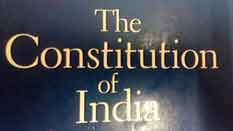Polygamous Marriage
Polygamy, the practice of having multiple spouses simultaneously, holds a
deep-seated history across various cultures and civilizations worldwide. While
some societies have embraced it as a cultural norm or religious mandate,
polygamy has also ignited debates and controversies concerning its ethical,
legal, and social implications. This article aims to explore polygamous
marriage, tracing its historical roots, examining contemporary practices, and
delving into the diverse perspectives surrounding it.
Traditional African, Middle Eastern, and Asian societies commonly accepted polygamy as a sign of prosperity and fertility. In many cultures, religious or customary laws regulated polygamous marriages, outlining the rights and responsibilities of each spouse within the marital arrangement.
In predominantly Muslim countries, polygamy is permitted under Islamic law, allowing men to have up to four wives, provided they can treat each spouse fairly and equitably. Certain indigenous communities in Africa also engage in polygamous marriages governed by customary laws and traditions.
Outside religious contexts, individuals may enter into polyamorous relationships, where multiple partners consent to form romantic or intimate connections. Unlike traditional polygamous marriages, polyamorous relationships may not entail legal or religious recognition and can vary significantly in structure and dynamics.
From a legal standpoint, polygamous marriage poses challenges in terms of marital rights, inheritance, and social welfare benefits. Individuals involved in such unions may face legal repercussions, including fines, imprisonment, or loss of child custody, in countries where polygamy is prohibited by law.
Furthermore, polygamous marriage can strain familial relationships and foster tensions within communities, particularly when jealousy, rivalry, or favoritism among spouses arise. Children born into polygamous households may also encounter stigma or discrimination based on their family structure, impacting their social and psychological well-being.
Within religious contexts, polygamy may be deemed permissible or even encouraged based on interpretations of sacred texts or teachings. While Islam permits polygamy under specific conditions outlined in the Quran, interpretations and applications vary among scholars and communities.
Conclusion
Polygamous marriage remains a multifaceted phenomenon entrenched in cultural, historical, and social contexts. While it has endured for millennia and persists in various forms today, it prompts significant ethical, legal, and practical considerations.
As societies evolve and attitudes toward marriage and family structures evolve, the discourse surrounding polygamy is likely to endure. While some advocate for greater acceptance and recognition of polygamous unions, others advocate for stringent legal constraints and safeguards to uphold individual rights and advance gender equality.
Ultimately, comprehending polygamous marriage necessitates a nuanced understanding of its cultural, religious, and socio-economic underpinnings, alongside acknowledgment of the diverse perspectives and experiences of those involved. By fostering open dialogue and engaging in respectful discourse, societies can navigate the complexities of polygamy and strive toward greater understanding and inclusivity within diverse communities.
Historical Roots of Polygamy
Polygamy traces its origins back thousands of years and has been practiced in diverse forms across different societies. In ancient civilizations, polygamy often symbolized power, wealth, and social status, with rulers and affluent individuals taking multiple spouses to solidify alliances, expand influence, or showcase prestige.Traditional African, Middle Eastern, and Asian societies commonly accepted polygamy as a sign of prosperity and fertility. In many cultures, religious or customary laws regulated polygamous marriages, outlining the rights and responsibilities of each spouse within the marital arrangement.
Contemporary Practices of Polygamous Marriage
Despite its historical prevalence, polygamy remains a contentious issue in modern times. While it is outlawed in many countries and cultures, it continues to be practiced clandestinely or openly in certain regions, often within the framework of religious or cultural traditions.In predominantly Muslim countries, polygamy is permitted under Islamic law, allowing men to have up to four wives, provided they can treat each spouse fairly and equitably. Certain indigenous communities in Africa also engage in polygamous marriages governed by customary laws and traditions.
Outside religious contexts, individuals may enter into polyamorous relationships, where multiple partners consent to form romantic or intimate connections. Unlike traditional polygamous marriages, polyamorous relationships may not entail legal or religious recognition and can vary significantly in structure and dynamics.
Legal and Social Controversies
Polygamous marriage continues to provoke debates over its legality, morality, and societal impact. Critics argue that polygamy perpetuates gender inequality and diminishes the autonomy of women, who may be relegated to subordinate roles within the household and contend for their husband's attention and resources.From a legal standpoint, polygamous marriage poses challenges in terms of marital rights, inheritance, and social welfare benefits. Individuals involved in such unions may face legal repercussions, including fines, imprisonment, or loss of child custody, in countries where polygamy is prohibited by law.
Furthermore, polygamous marriage can strain familial relationships and foster tensions within communities, particularly when jealousy, rivalry, or favoritism among spouses arise. Children born into polygamous households may also encounter stigma or discrimination based on their family structure, impacting their social and psychological well-being.
Cultural and Religious Perspectives
Advocates of polygamous marriage often cite cultural or religious traditions to justify its practice. In certain societies, polygamy is viewed as a means of preserving lineage continuity, ensuring economic security, or fulfilling religious obligations. For instance, in some African cultures, polygamous marriage is perceived as a way to strengthen familial bonds and uphold communal welfare.Within religious contexts, polygamy may be deemed permissible or even encouraged based on interpretations of sacred texts or teachings. While Islam permits polygamy under specific conditions outlined in the Quran, interpretations and applications vary among scholars and communities.
Conclusion
Polygamous marriage remains a multifaceted phenomenon entrenched in cultural, historical, and social contexts. While it has endured for millennia and persists in various forms today, it prompts significant ethical, legal, and practical considerations.
As societies evolve and attitudes toward marriage and family structures evolve, the discourse surrounding polygamy is likely to endure. While some advocate for greater acceptance and recognition of polygamous unions, others advocate for stringent legal constraints and safeguards to uphold individual rights and advance gender equality.
Ultimately, comprehending polygamous marriage necessitates a nuanced understanding of its cultural, religious, and socio-economic underpinnings, alongside acknowledgment of the diverse perspectives and experiences of those involved. By fostering open dialogue and engaging in respectful discourse, societies can navigate the complexities of polygamy and strive toward greater understanding and inclusivity within diverse communities.
Law Article in India
Legal Question & Answers
Lawyers in India - Search By City
LawArticles
How To File For Mutual Divorce In Delhi

How To File For Mutual Divorce In Delhi Mutual Consent Divorce is the Simplest Way to Obtain a D...
Increased Age For Girls Marriage

It is hoped that the Prohibition of Child Marriage (Amendment) Bill, 2021, which intends to inc...
Facade of Social Media

One may very easily get absorbed in the lives of others as one scrolls through a Facebook news ...
Section 482 CrPc - Quashing Of FIR: Guid...

The Inherent power under Section 482 in The Code Of Criminal Procedure, 1973 (37th Chapter of t...
The Uniform Civil Code (UCC) in India: A...

The Uniform Civil Code (UCC) is a concept that proposes the unification of personal laws across...
Role Of Artificial Intelligence In Legal...

Artificial intelligence (AI) is revolutionizing various sectors of the economy, and the legal i...







Please Drop Your Comments